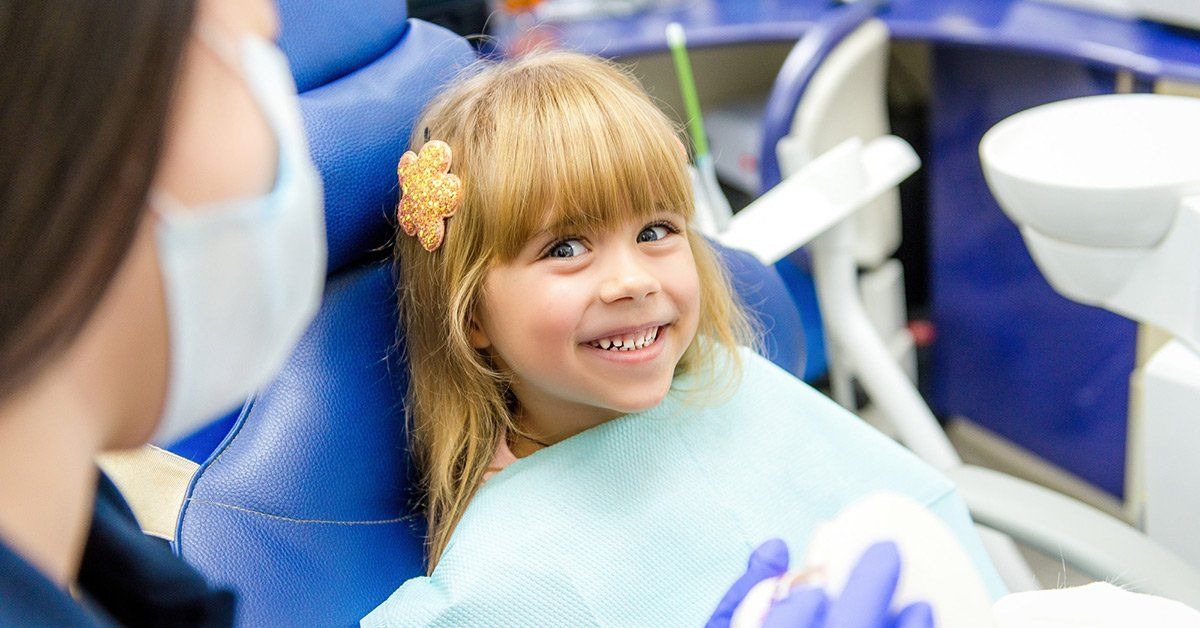How Pediatric Dentistry Helps Prevent Long-Term Dental Problems
 |
| Pediatric Dentistry |
For parents seeking guidance on pediatric dental care, 4Smile serves as a valuable resource, providing comprehensive information on preventive practices, oral hygiene tips, and the importance of early dental visits. Understanding the significance of good dental habits from the start can make a world of difference for your child’s future oral health.

What is Pediatric Dentistry?
Pediatric dentistry is a specialized branch of dentistry that focuses on the oral health of children from infancy through adolescence. Unlike general dentists, pediatric dentists are trained to address the unique needs of children, including their developing teeth, gums, and jaws.
Here’s what pediatric dentistry covers:
- Preventive Care: Regular cleanings, fluoride treatments, and dental sealants to prevent cavities.
- Education: Teaching children and parents how to maintain proper oral hygiene at home.
- Treatment: Managing common issues like cavities, gum inflammation, and orthodontic concerns.
- Early Intervention: Detecting and addressing problems like misaligned teeth or bite issues before they worsen.
By focusing on both prevention and education, pediatric dentistry ensures that children grow up with strong, healthy teeth and a positive attitude toward dental care.
The Importance of Early Dental Visits
According to the American Dental Association, children should visit a dentist by their first birthday or within six months of their first tooth erupting. Early dental visits play a vital role in establishing a foundation for good oral health and addressing any potential issues before they escalate.
Why Early Visits Matter:
- Preventing Cavities: Early checkups help identify risk factors for tooth decay and allow for timely preventive treatments like fluoride applications.
- Reducing Dental Anxiety: Introducing children to dental care early creates a positive experience, reducing fear and anxiety as they grow older.
- Establishing Healthy Habits: Parents receive guidance on brushing, flossing, and dietary choices that support oral health.
- Detecting Issues Early: Problems like teething difficulties, gum inflammation, or jaw misalignment can be addressed before they become more serious.
By starting dental visits early, parents set their children up for a lifetime of healthy smiles.

Preventing Cavities: A Core Focus of Pediatric Dentistry
Did you know that cavities are one of the most common chronic conditions among children? The good news is that they’re largely preventable. Pediatric dentists use a combination of education and preventive treatments to protect children’s teeth from decay.
How to Prevent Cavities:
- Proper Oral Hygiene: Brushing twice daily with fluoride toothpaste and flossing regularly.
- Fluoride Treatments: Strengthens tooth enamel and protects against decay.
- Dental Sealants: Thin protective coatings applied to the chewing surfaces of molars to block out plaque and food particles.
- Healthy Diet: Limiting sugary snacks and encouraging nutrient-rich foods like fruits, vegetables, and dairy products.
With routine checkups and early interventions, pediatric dentists ensure that children’s teeth remain strong and healthy.
The Role of Fluoride in Pediatric Dental Care
Fluoride is a natural mineral that strengthens tooth enamel and prevents cavities. For children, fluoride treatments are a key part of preventive care. Pediatric dentists often recommend fluoride applications during checkups, especially for children at high risk of decay.
Benefits of Fluoride for Children:
- Remineralizing Enamel: Repairs weakened enamel and reverses early signs of tooth decay.
- Preventing Cavities: Creates a barrier against bacteria and acids that cause decay.
- Long-Term Protection: Regular fluoride treatments help maintain strong, healthy teeth as children grow.
Parents are also encouraged to use fluoride toothpaste at home, ensuring ongoing protection between dental visits.

Addressing Orthodontic Issues Early
Orthodontic problems like crooked teeth or bite misalignments often begin in childhood. Pediatric dentists play a crucial role in spotting these issues early and recommending treatment when necessary.
Why Early Detection Matters:
- Simplifies Future Treatment: Addressing orthodontic issues early can reduce the need for complex treatments later.
- Prevents Misalignment: Space maintainers and other tools can guide teeth into proper alignment.
- Improves Confidence: A well-aligned smile boosts a child’s self-esteem and overall oral health.
Pediatric dentists monitor your child’s dental development and coordinate with orthodontists when needed, ensuring optimal results.
How Diet Impacts Children’s Oral Health
A child’s diet plays a significant role in their oral health. Sugary snacks and acidic drinks can contribute to tooth decay, while nutrient-rich foods promote strong, healthy teeth.
Foods to Encourage:
- Dairy Products: Rich in calcium and phosphorus, which strengthen teeth.
- Fruits and Vegetables: High in vitamins and fiber, helping to clean teeth naturally.
- Whole Grains: Provide essential nutrients for healthy gums.
Foods to Limit:
- Sugary candies and sodas.
- Sticky snacks like gummies or caramel.
- Acidic beverages such as sports drinks and citrus juices.
Teaching children about healthy eating habits not only benefits their overall health but also contributes to better oral hygiene.
Teaching Kids Good Oral Hygiene Habits
Educating children about proper oral care is a cornerstone of pediatric dentistry. The earlier they learn how to care for their teeth, the more likely they are to maintain these habits into adulthood.
Key Practices to Teach Your Child:
- Brushing: Use a soft-bristled toothbrush and fluoride toothpaste. Teach them to brush for two minutes, twice a day.
- Flossing: Start flossing as soon as two teeth touch to remove plaque and food particles.
- Regular Checkups: Reinforce the importance of visiting the dentist every six months.
By making oral care a part of your child’s daily routine, you’re setting them up for a lifetime of healthy smiles.

The Importance of Regular Dental Checkups
Routine checkups are essential for maintaining children’s oral health. Pediatric dentists recommend visiting every six months to stay ahead of potential problems and ensure optimal care.
What Happens During a Checkup?
- Professional cleaning to remove plaque and tartar.
- Fluoride treatments to strengthen enamel.
- Examination for cavities, gum health, and proper tooth alignment.
- Advice on oral hygiene and diet tailored to your child’s needs.
Regular checkups are a proactive way to keep your child’s teeth healthy and avoid costly treatments down the road.

FAQs
When should my child first visit the dentist?
Your child should visit a pediatric dentist by their first birthday or within six months of their first tooth eruption.
How can I prevent cavities in my child’s teeth?
Encourage proper brushing and flossing, limit sugary snacks, and ensure regular dental checkups. Consider fluoride treatments and sealants for added protection.
Are dental sealants safe for children?
Yes! Sealants are a painless and highly effective way to protect teeth from cavities.
How can I help my child feel comfortable at the dentist?
Choose a pediatric dentist who uses child-friendly techniques and creates a welcoming environment. Prepare your child by explaining what to expect in simple terms.
What role does diet play in oral health?
A balanced diet rich in calcium, vitamins, and fiber supports strong teeth and gums, while sugary or acidic foods increase the risk of decay.
Conclusion
Pediatric dentistry is essential for ensuring that children grow up with healthy teeth and gums. From early visits to cavity prevention, fluoride treatments, and orthodontic guidance, pediatric dentists provide comprehensive care that sets the stage for a lifetime of good oral health.
By addressing issues early and promoting healthy habits, parents can help their children avoid serious dental problems and costly treatments in the future. Joining resources like 4Smile can provide invaluable guidance on preventive care and oral hygiene practices, ensuring that your child’s smile stays bright and healthy for years to come.



Comments
Post a Comment